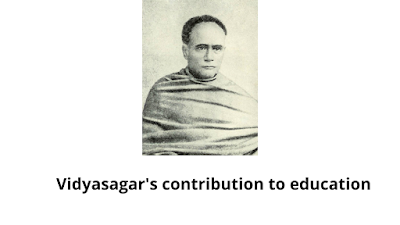Read the following passage carefully and make a precis of it with a suitable heading
PASSAGE: Vidyasagar had both the originality of a genius and the sterling strength of a heroic character. He thought out a new technique of teaching Sanskrit more easily to beginners and wrote a series of primers in the Sanskrit language and literature adapted to modern needs. He also arranged for the collection and preservation of old Sanskrit books. In Bengali prose, Vidyasagar’s work, was a landmark. He evolved an elegant, although a bit too stately and chaste style of writing which impressed everybody.
Between 1847 and 1863, he wrote a series of books in Bengali which became classics to the students of literature. In these, he drew his material impartially from the Indian epics and popular tales as well as from western fables and biographies. His ‘Bengali Primer’ for beginners is even today in household use. But Vidyasagar was no mere scholar or man of letters. As an educational reformer, he opened the Sanskrit college to non-Brahmin boys and provided for classical scholars some English education as well. As an administrator of vision, he rendered splendid service in his capacity of government inspector and in four districts he organised a total of 35 girls’ schools and 20 model schools. He was closely associated from its early days with the institution which now bears his name and which under his fostering care became the outstanding example of a non-official, secular and popular institution for higher education with a purely Indian teaching staff. He was equally interested in women’s higher education, and was secretary to the Bethune School for sometime.
PRÉCIS Title: Vidyasagar’s contribution to education
Vidyasagar, a versatile genius, brought about a great change in education. He introduced a novel method of teaching and composed several books in easy language to promote education. His credit lies in publishing new textbooks for beginners and a series of books in Bengali to cater to the need of the day. He also reformed the system by allowing non-Brahmins to study Sanskrit and providing English education for classical scholars. He organized schools, specially for spreading girls’ education.
